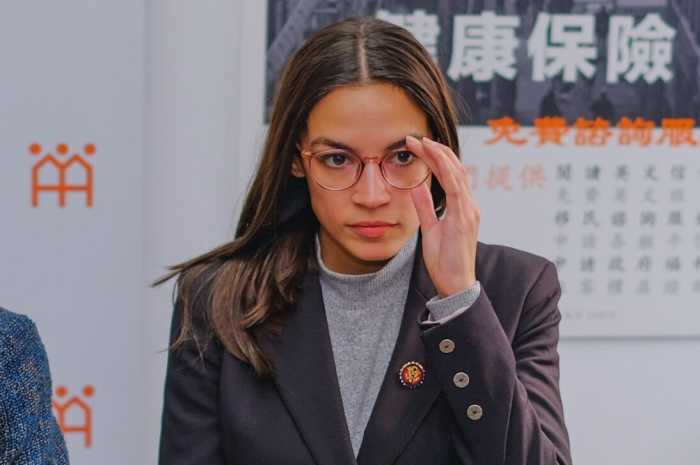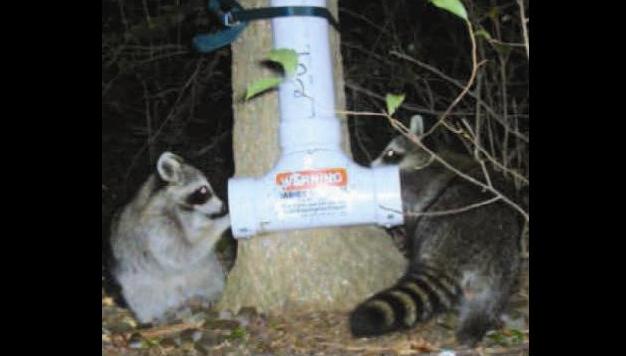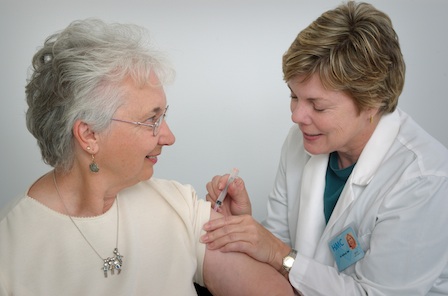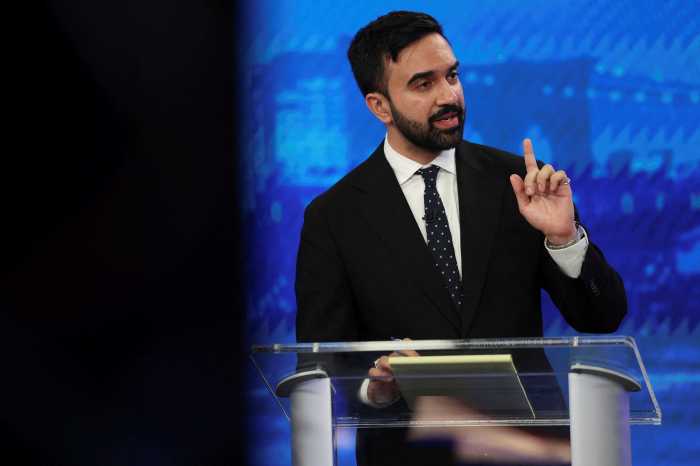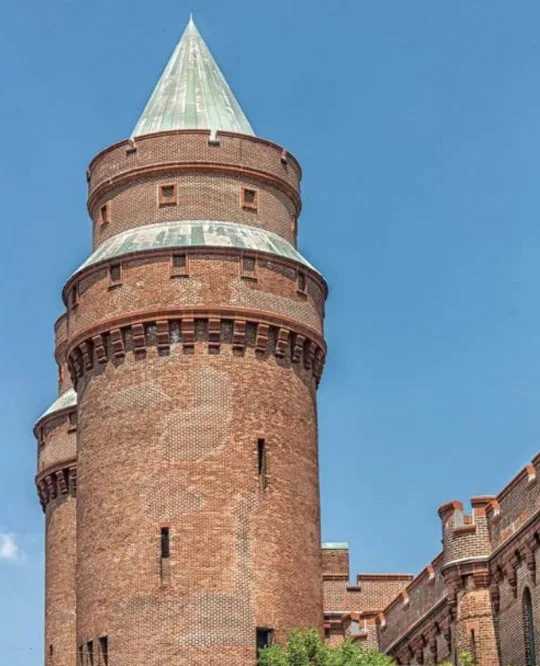Several days after the first COVID-19 vaccine outside of a clinical trail was administered in the United States, New York City’s public hospital system began inoculating health care workers in Elmhurst on Wednesday, Dec. 16.
Once the epicenter of the coronavirus crisis in the country, Elmhurst Hospital, which is part of the city’s NYC Health + Hospital system, began distributing Pfizer’s COVID-19 vaccine this week to frontline health care workers, who continue to battle the virus as the infection rate among city residents surges.
“We’re here at Elmhurst Hospital, a heroic place. A place where something extraordinary happened,” said Mayor Bill de Blasio, who gave remarks prior to the first distribution of the vaccine in the public hospital system. “Elmhurst Hospital has a lot to be proud of. Queens has a lot to be proud of.”
William Kelly, a service aid in the hospital’s environmental services department, and Veronica Delgado, an emergency room lead physician assistant, were the first to be given the vaccine, which was administered the hospital’s interim CEO, Eric Wei, and NYC Health Commissioner Dr. Dave Chokshi.
NYC Health + Hospitals President and CEO Mitchell Katz said the hospital has set a goal to vaccinate their staff of more than 4,200 within three weeks. Katz added that all 11 public hospitals have received the vaccine.
Delgado, a 65-year-old Astoria resident who’s worked at the hospital for more than 30 years, said the moment felt like “that first bit of sunlight in the morning after a very long, dark, and frightening night.”
“I feel very privileged to be one of the first to get the vaccine, I know there are people that are more frontline and more deserving so my message to the mayor is that I hope everybody can be vaccinated quickly,” Delgado said. “My message to non-healthcare providers is that everyone has to do their own research and make their own decisions but not to be afraid of the vaccine — and not to get information off of Facebook.”
Kelly, a 62-year-old Jamaica resident who’s worked at the hospital for more than 20 years, said he felt happy and comfortable when getting the vaccine.
“It’s like taking a flu shot,” said Kelly. “I worked all over the hospital for the last four months that we had it. I got through it, stayed strong and healthy. But it was very rough for those first months. You see the faces, think about them just laying there, suffering.”
Kelly added that he hopes others will take the vaccine too, so “we can all get back together.”
The pair, who will need a second dose of the vaccine in the coming weeks, were led out of the hospital by the mayor as their colleagues cheered them on.
William Kelly and Veronica Delgado, both over 60 years old, were the first frontline workers at Elmhurst Hospital to receive the vaccine — administered by CEO Eric Wei and NYC Health Commissioner Dr. Dave Chokshi. pic.twitter.com/bjK9TqeP42
— Angélica M. Acevedo (@angacevedo15) December 16, 2020
Wei said they have been prepping and have multiple back-ups for the freezers needed to store the Pfizer vaccine, which must be kept at a temperature of -70°C.
“The supply is really being dictated by what Pfizer is able to create and across the country, so we don’t know until it comes through our door how much we’re getting,” Wei said. “It’s be appointment, and we’re starting with those who are most likely to be exposed to the virus, those who are highest risk of having severe disease and complications from the virus.”
Though the vaccine has brought a dose a hope to a city burdened by the pandemic for 10 months, a steady rise in infections and a new round of shutdowns has residents and city officials worrying of a dark winter.
All of the city’s troubling metrics, including the positive COVID-19 testing rate, hospitalizations, cases and deaths, have seen increases in the past month.
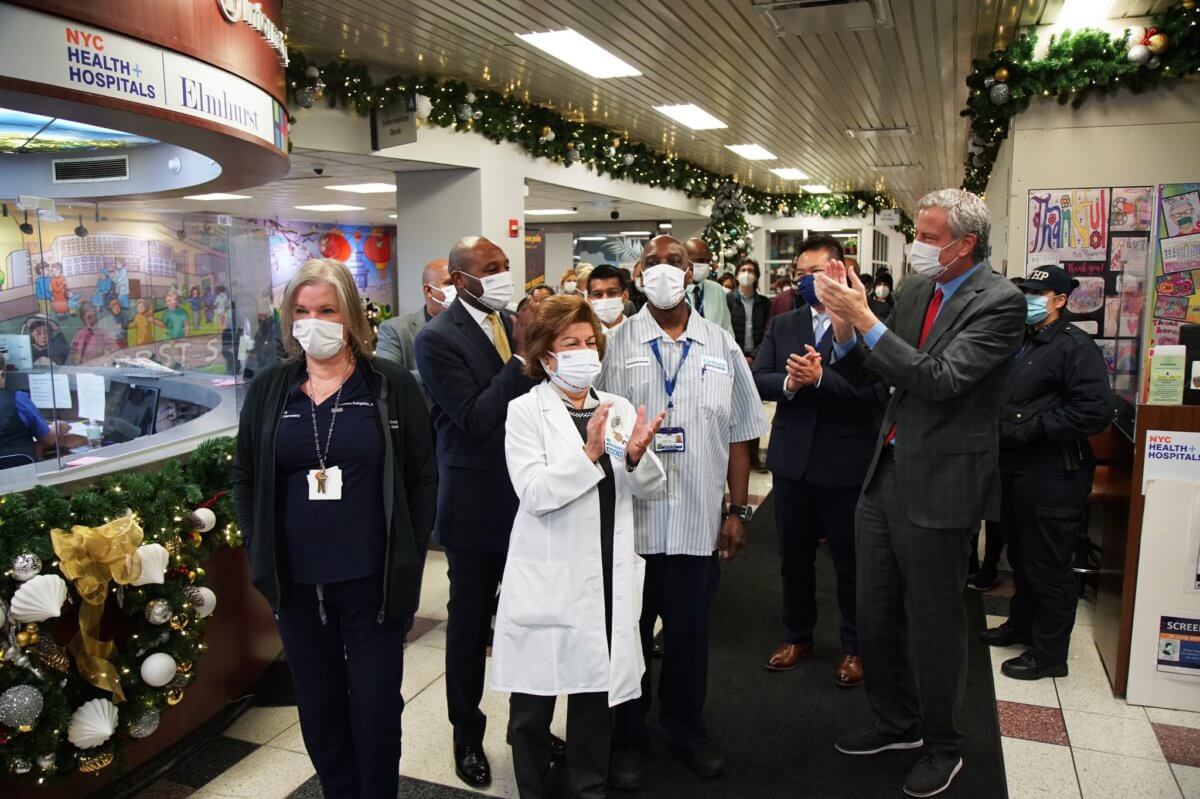
Queens Borough President Donovan Richards attended the event, which he said “we’ve all been waiting for.”
“We’re all are going to have a job ahead of us and that’s to make sure that the public understands that they should be confident in taking the vaccine,” said Richards. “I know that there’s a lot of apprehension when it comes to the history in vaccination, especially when it comes to communities of color, but this is not an experimentation, this is to ensure that we can all, like [Kelly] said, get back together and get back to some level of normalcy and try to move forward from such a dark time.”
Richards, who visited Elmhurst Hospital to meet with staff members a few days prior, said he’s been in talks with the mayor to ensure Queens is prioritized in the vaccination’s distribution.
“I feel very good on the equity lens being placed on the vaccination of communities across Queens,” he said.
In Queens, there were nearly 700 confirmed cases of COVID-19 – calculated on a seven-day average – at the beginning of this week.


